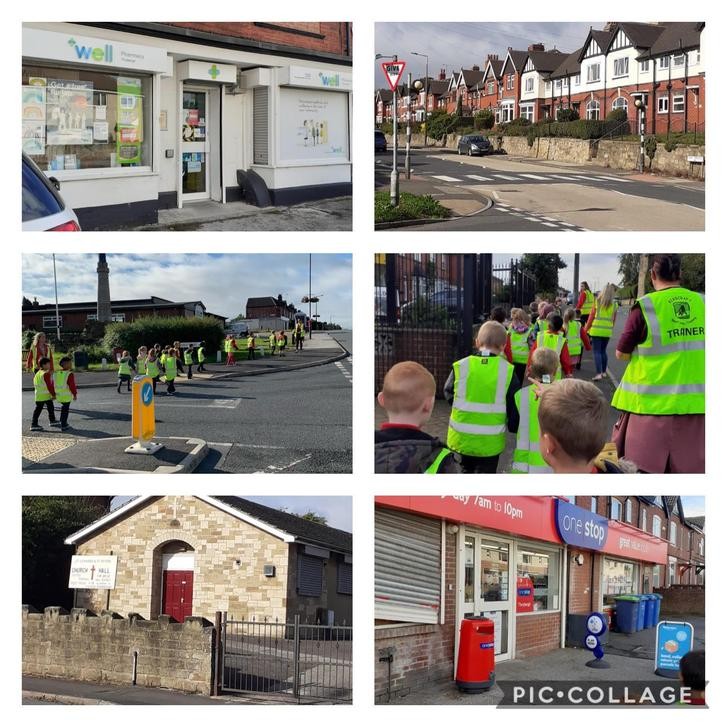Geography
At Thyrbergh Fullerton, we aspire for our children to become geographers who are aware of, who are interested in and who are inquisitive about the World around them and where they fit into it. By the time children leave Thrybergh, they will be equipped with the substantive and disciplinary knowledge needed to become life-long geographers.
The study of Geography introduces children to a plethora of cultures that may differ to the one that they are exposed to at school or at home, thus developing a deeper understating about diversity and how cultures change over time.
Studying Geography also introduces children to the wonders of the natural world and gives them the skills needed to explore that world.
Curriculum
At Thrybergh, we follow the new National Curriculum for Geography which can be found at the following site:
The geography curriculum at Thrybergh is taught through a coherent scheme via a range of projects which are well sequenced to progressively develop children’s geographical substantive and disciplinary knowledge. Knowledge builds coherently upon previous years’ knowledge and there are many opportunities to revisit previously learnt material (see long term plan and coverage map, links below).
Key Stage 1
In Key Stage 1, each autumn term begins with essential skills and knowledge projects (Our Wonderful World in Year 1 and Let’s Explore the World in Year 2). Teaching these projects in Years 1 and 2 enables children to be introduced to, or revisit, critical geographical concepts, aspects, skills and knowledge. These projects prepare children for the study of more thematic geography projects in the following term.
In the spring term of Year 1, children study the project Bright Lights, Big City. This project introduces children the geography of urban environments and the physical and human features of the United Kingdom.
In contrast, in the spring term of Year 2, children carry out a detailed study of coastal geography in the project Coastline. This project introduces children to the geography of coastal environments and provides children with the opportunity for in-depth coastal fieldwork.
Lower Key Stage 2
In Lower Key Stage 2, children begin with essential skills and knowledge projects (One Planet, Our World in Year 3 and Interconnected World in Year 4). Teaching these projects in Years 3 and 4 enables children to further develop their skills, knowledge and understanding of key geographical aspects and concepts and prepares them to study more thematic geography projects in the following term.
In the spring term of Year 3, children study the project Rocks, Relics and Rumbles, which explores physical features and geographical phenomena, including earthquakes and volcanoes.
In contrast, in the spring term of Year 4, children carry out a detailed study of the physical features of mountains and rivers, which includes opportunities for in-depth fieldwork.
Upper Key Stage 2
In Upper Key Stage 2, children again begin with essential skills and knowledge projects (Investigating Our World in Year 5 and Our Changing World in Year 6). Teaching these projects in Years 5 and 6 enables children to develop their skills, knowledge and understanding of key geographical aspects and concepts and prepares them to study more thematic geography projects in the following term.
In the spring term of Year 5, children study the seasonal project Sow, Grow and Farm, which explores farming, agriculture and rural land use.
In the spring term of Year 6, children study the polar regions in the project Frozen Kingdoms. The project includes an in-depth analysis of the characteristics of these regions, including environmental issues.
The summer term allows children to revisit less secure concepts and to formulate links between concepts.
Experiences
Where possible, geography projects are broadened with real-life experiences in and out of the classroom, such as educational visits and conducting fieldwork projects. Pupils have the opportunity to collect, analyse and communicate data gathered on these field trips to enhance their understanding, as well as then comparing and contrasting the places they have learnt about.
Deepening Knowledge
Where there are opportunities for making meaningful connections across geographical projects, these are sequenced accordingly. For example, children revisit the geography of settlements in the history project School Days after studying types of settlements in the geography project Bright Lights, Big City.
At Thrybergh, we also acknowledge the need to deepen understanding by creating cross-curricular links with other subjects. For example, children in Year 6 study the impact of migration and the Windrush generation linked to the historical topic of the African Slave Trade, Maafa. In doing so, children are encouraged to actively make connections to strengthen schemas and aide retention of knowledge, they are encouraged to be inquisitive and ask questions about the world around them and they are encouraged to seek answers to these questions using the substantive and disciplinary knowledge taught in class and which are used by geographers.
Long term plan Y1-Y6
Yearly Coverage - Knowledge & Vocabulary
National Curriculum - Geography
Photos - Geography

Year 2 take a walk around our local area

